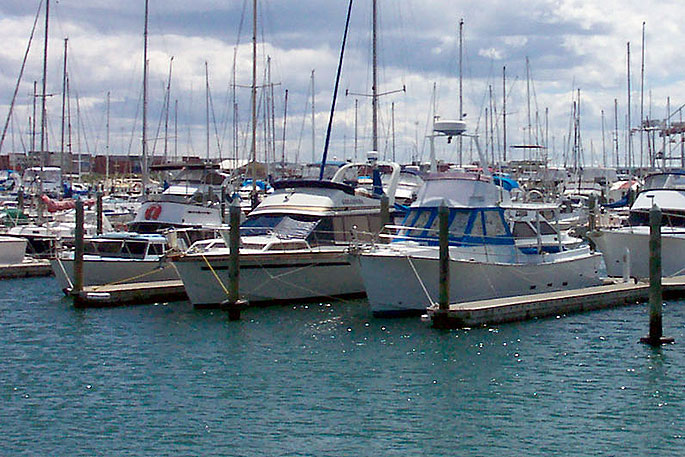New research released today shows recreational boaties are behaving more safely but Maritime NZ is warning them not to slip up on their good work this summer.
Lifejacket wearing behaviour is steady. In addition more boaties are checking the weather, taking two ways to call for help, and avoiding alcohol when going out on the water.
Incoming Chair of the Safer Boating Forum* and Maritime NZ Deputy Director Sharyn Forsyth says the 2018 Ipsos survey is encouraging and shows that boaties’ safety behaviour has improved in the four key risk areas identified and targeted by the 23-member Safer Boating Forum.
“This survey is a good indicator of how prepared boaties are in the run up to Labour Day weekend, which is traditionally when boaties get back on the water. Unless they properly prepare their boat, make good decisions before they leave and check their gear, it can also be a time when fatality numbers start to rise.
“It’s fantastic to see that 92 per cent of boaties say that boating safety is personally important to them as attitude influences behaviour.
“The decade spent by the Safer Boating Forum and councils promoting safer boating is really increasing boaties’ safety awareness.”
Lifejackets remain the most prevalent form of safety device taken on boating trips and the number of boaties wearing their lifejackets all, or most of the time, on the water, remains stable at 75 per cent.
“Most encouraging are the significant increases from last year in the three other risk areas - checking the weather, taking communications and avoiding alcohol before going out on the water.”
Boaties checking the weather has risen to 85 per cent; 67 per cent are avoiding alcohol ‘every time’; and 43% of have at least two ways to signal or call for help if needed.
Martime New Zealand's summer Safer Boating campaign is encouraging boaties to check and wear their lifejacket and take a VHF marine radio.
Boaties, safer boating organisations, councils and those keen to know more about how people behave on the water can have a look at our new interactive infographic which highlights the results of the Ipsos research.
View the Ipsos infographic: http://ipsos.com.au/maritimenz_infographic/2018/
View the Ipsos research: https://www.maritimenz.govt.nz/recreational/safety-campaigns/recreational-research.asp
Boating by the numbers 2018
- 1.5 million adults (42 per cent of New Zealanders) were involved in recreational boating last year.
- Kayaks remain the most popular craft used by boaties (33 per cent), followed by power boats under six metres (22 per cent), and dinghies (11 per cent).
- Last year 19 people died in recreational boating accidents on New Zealand waters. Of these, 18 were men - 14 over 40 years (the highest fatality group).
- Lifejackets remain the most prevalent form of safety device taken on boating trips.
- The number of boaties wearing their lifejackets all, or most of the time, on the water, remains stable at 75 per cent.
- The percentage of boaties having at least two ways to signal or call for help if needed ‘every time’ has risen to 43 per cent in 2018 from 38% in 2017.
- The percentage of boaties checking the weather before heading out on the water has risen to 85 per cent in 2018 from 81 per cent in 2017.
- The decision to avoid alcohol ‘every time’ either before or during time on the water has risen from 61 per cent in 2017 to 67 per cent in 2018.
*The Safer Boating Forum
The Forum is made up of boating and water safety organisations, the marine industry, and central and local government agencies. It works to reduce boating injuries and fatalities, and improve boat safety behaviour.
Forum members are: ACC, Coastguard Boating Education, Coastguard New Zealand, Drowning Prevention Auckland, Jet boating NZ, Kiwi Association of Sea Kayakers, local authorities, Maritime NZ, New Zealand Jet Sports Boating Association, New Zealand Marine Industry Association, New Zealand Police, New Zealand Search and Rescue Council, New Zealand Underwater Association, Surf Life Saving New Zealand, Waka Ama NZ, Water Safety New Zealand, Whitewater New Zealand, and Yachting New Zealand.



0 Comments
Leave a Comment